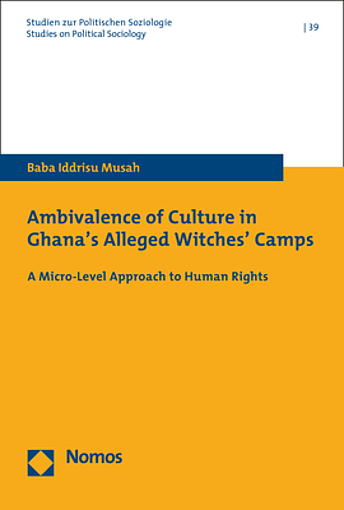englischThroughout the world, human rights have grown in prominence over the years. Despite this feat, numerous global events in the past and in recent times, especially those driven by political interests, show that respect for the ideals of human rights are far from being realised in practice. With approaches largely state-centred in nature, these events fundamentally point to a marked gap between human rights norms and practice. What is unfortunately and clearly afforded a low priority or no priority at all in these state-based and politically vested contestations are missing links between international human rights norms and cultural or traditional belief systems and practices. Specifically, this thesis argues that when it comes to beliefs in witchcraft and its practices, there remains a sizeable gap between theory and practice, and this creates the thorny and contentious issue of the unpleasant conflict between international human rights and specific cultural belief systems, practices, norms and values. With a view to analysing the dichotomy between culture and human rights, this dissertation positions, explores and indeed questions beliefs in and practices of witchcraft in Ghana, and particularly Ghana’s alleged witches’ camps, within the framework of international human rights.
Überall auf der Welt haben Menschenrechte im Laufe der Jahre an Bedeutung gewonnen. Trotz dieser Errungenschaften zeigen zahlreiche Ereignisse, die vor allem politisch motiviert sind, dass die Achtung der Menschenrechte in der Praxis leider noch lange nicht überall verwirklicht ist. Bisherige Studien dazu weisen auf eine starke Kluft zwischen Menschenrechtsnormen und Praxis hin. Was bislang in der akademischen Forschung fehlt, sind Studien zu traditionellen Glaubenssystemen. Der vorliegende Band schließt diese Lücke. Mithilfe der Grounded Theory wird der theoretische Hintergrund der Praktiken der Hexenverfolgung in Ghana beleuchtet und die Verbindung zu internationalen Menschenrechten hergestellt.


